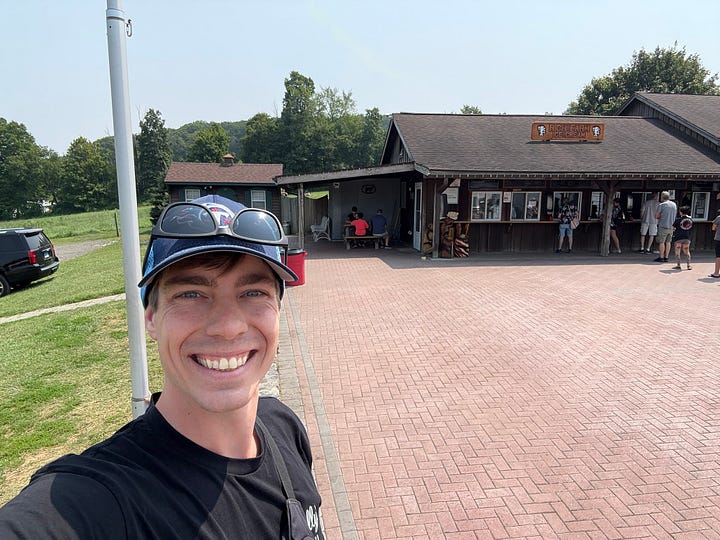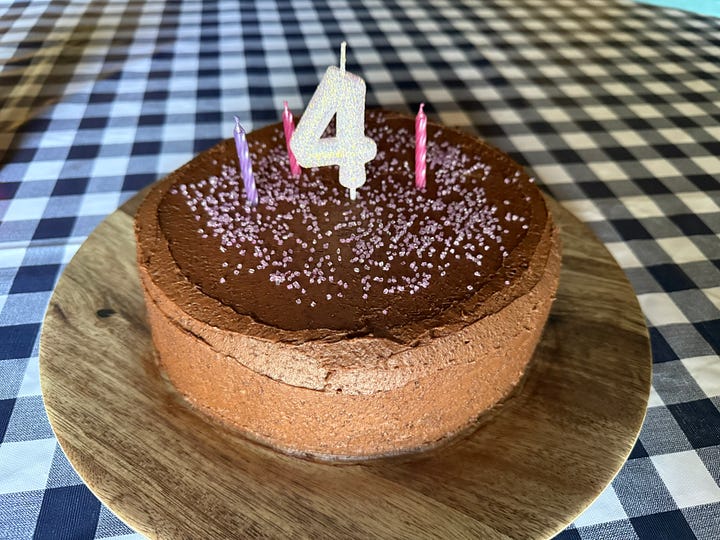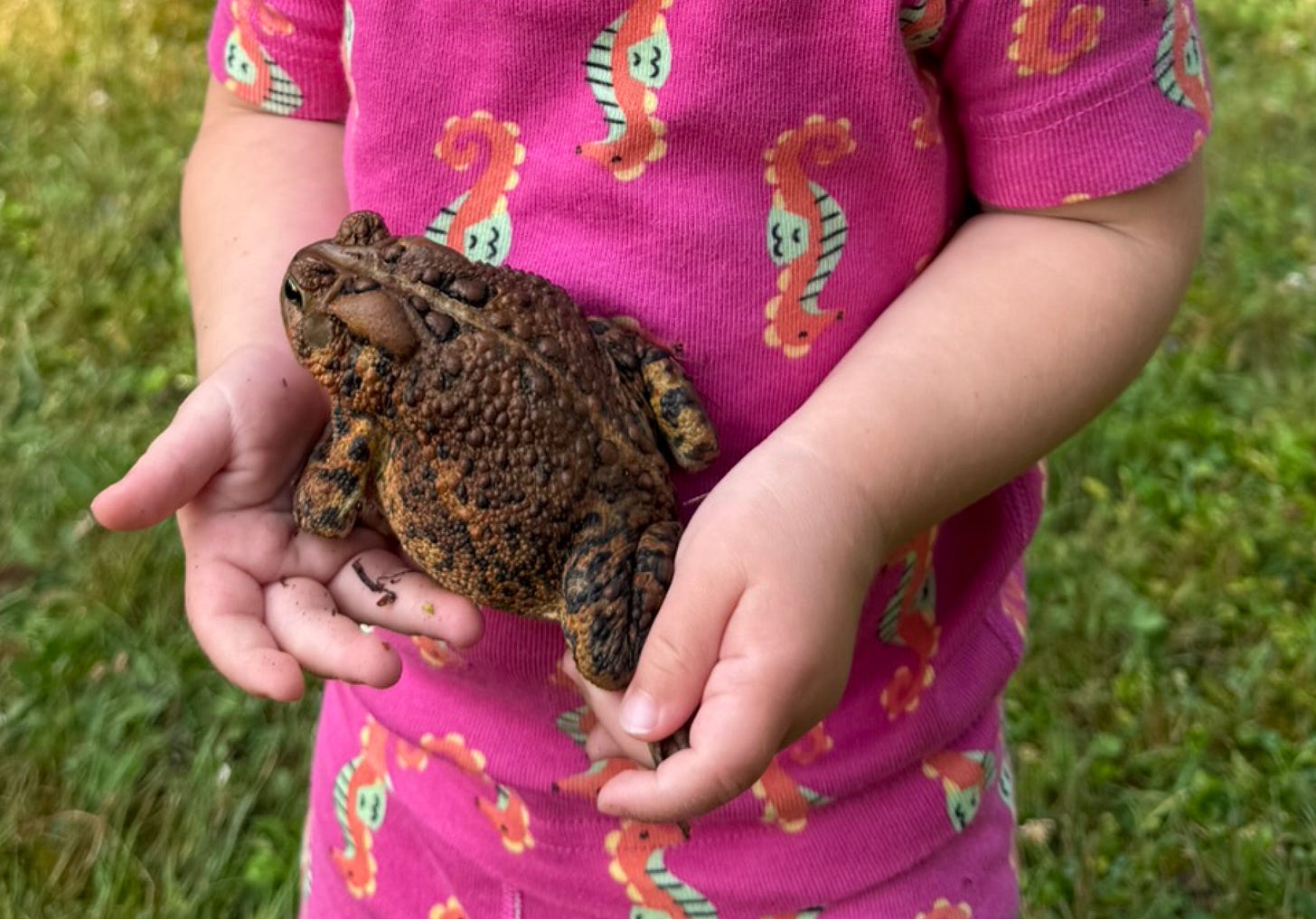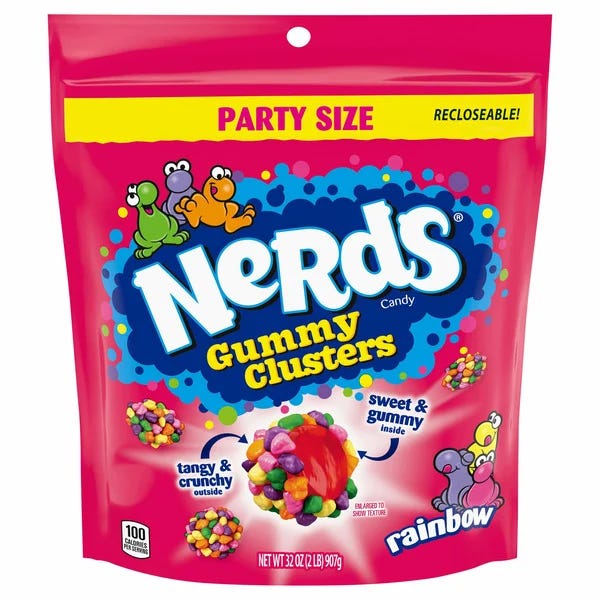The Cookie Box Principle
Generative AI and the temptation to overestimate our willpower
Coming off a week at the lake, I’m back behind the keyboard and thinking more about generative AI and the challenges educators and students will face when they return to school this fall in a few weeks. More than any specific AI tool or app, the challenge this fall will be the question of how generative AI shapes learning environments. Frog and Toad have some wisdom to offer us.
Thank you for being here. As always, these essays are free and publicly available without a paywall. The best way to support me and my work is to share it with a friend or upgrade to a paid subscription.
"What is will power?" asked Toad.
"Will power is trying hard not to do something that you really want to do." said Frog.
"You mean like trying not to eat all of these cookies?" asked Toad.
Perhaps the most important thing for teachers to keep in mind as they consider the impact of genAI on their courses this fall is what I'm calling the Cookie Box Principle. Generative AI, like any technology, has potential upsides and downsides. The real challenge is making a wise decision about whether the pro outweighs the con and whether you can adequately leverage its benefits without also exposing yourself to the potential negative consequences.
The Cookie Box Principle—inspired by a short story of two of my favorite children's book characters, Frog and Toad, and by this post by Lee Mager—is a cautionary tale of the danger of over-reliance on one's own self-discipline and willpower. With generative AI becoming ever more accessible to all of us, we would do well to learn from Frog and Toad.
Technology's fraught relationship with friction
As I've written before, there is a fundamental tension in using genAI to help you learn. There are two pieces:
Friction is a fundamental part of learning
Technology, in the aim of maximizing efficiency, almost always eliminates friction by design.
This is not to say that there aren't ways for genAI to be useful for learning, but it is to say that it's a tough needle to thread. As we consider how to guide our students through the turbulent waters of their AI-inundated schools this fall, we should be wary of the power of temptation and the limits of our own willpower.
It's not enough to consider a specific technology in our classroom: we need to think about the environment surrounding our students and ask whether we are setting them up for success and whether the risk for misuse is worth the potential reward of appropriate use.
But enough about general principles. What about cookies and candy?
Environment matters
We've been traveling on the East Coast for the last few weeks, spending time with family. On both trips to Costco while we’ve been here, they've had these humongous bags of Nerds Gummy Clusters. I'm not sure what to say, but they just seem to fall into the cart as I walk by, no matter what I try to do.
You don’t just bring a bag of these home without consequences. When the Nerds Gummy Clusters enter your household, the whole landscape of your appetite shifts. Suddenly, every trip across the room is a good excuse to grab a few (just a few!) of gummy clusters. What's not to like about a little sweetness to brighten your day?
Our friends Frog and Toad know the feeling. In one of my favorite of Arnold Lobel's short stories, "Cookies," Toad bakes up a batch. He runs to Frog's house and offers some to his best friend. They eat a few, overjoyed with the deliciousness of them. But soon they get the feeling that they should stop eating, fearing that they will get sick. So, they begin to search for ways to shield themselves from temptation.
First, they put the cookies in a box. Toad astutely notices that they can still easily open the box. So they tie some string around the box. But, Toad says, we can just cut the string and open the box. Next, they try to put the box up high, where they cannot easily reach it. But Toad once again is skeptical of Frog's efforts. "We can climb the ladder, and take the box down from the shelf and cut the string and open the box," Toad says.
The stronger the temptation, the stronger the countermeasure required
My fight with Nerds Gummy Clusters and Frog and Toad's struggle with their freshly-baked cookies should offer us a warning about how generative AI may impact our ability to engage in the hard and frictionfull experience of learning.
This fall, we'll see generative AI continue to seep into so many of the digital tools that educators and students use. We've already got it baked into the most popular Word processors, from the MS Office Suite to Google Workspace. "Help me write," the tools beckon. A few cookies can quickly turn into an unhealthy dependence.
On top of that, we'll also see AI companies continue to roll out offerings, often directly targeting educational contexts. Jennie Dougherty fired off an important flare last month, flagging how Google is rolling out genAI tools into Google Classroom as "default on." Last week, OpenAI released "Study Mode" for ChatGPT. As Simon Willison helpfully uncovers in a blog post about the new feature, Study Mode is little more than a custom system instruction. In other words, this "feature" is little more than a button that puts a specific prompt, which is injected at the start of your chat. OpenAI drums it up:
Under the hood, study mode is powered by custom system instructions we’ve written in collaboration with teachers, scientists, and pedagogy experts to reflect a core set of behaviors that support deeper learning including: encouraging active participation, managing cognitive load, proactively developing metacognition and self reflection, fostering curiosity, and providing actionable and supportive feedback. These behaviors are based on longstanding research in learning science and shape how study mode responds to students.
I can imagine many scenarios in which Study Mode can be useful. I am bullish on the ability of LLMs to help us explore new ideas and navigate information. They've become a frequently used tool in my toolbox and for many of my students as well, I'm sure.
But LLMs—Study Mode or not—cannot and will not ever solve the more fundamental challenges of education. An LLM can be useful for learning in the hands of a student in much the same way that a textbook can be. It's a tool that, when used in the appropriate manner, for thoughtfully considered ends, can help aid our learning.
But the bigger question is about how the LLMs and the applications built on top of them will shape our learning environments. Having a few cookies or Nerds Gummy Clusters is fine, but soon you'll come to find that the box of cookies or bag of candy is a curse rather than a blessing, misshaping your desires and turning you into someone you do not want to be.
How to get lots and lots of willpower
The Cookie Box principle, in a sentence: don’t overestimate your ability to resist temptation.
At the end of the story, Frog finds a solution to their problem.
Frog took the box outside.
He shouted in a loud voice,
"HEY BIRDS.
HERE ARE COOKIES!"
Birds came from everywhere.
They picked up all the cookies in their beaks and flew away.
"Now we have no more cookies to eat," said Toad sadly.
"Not even one."
"Yes," said Frog, "But we have lots and lots of will power."
"You may keep it all, Frog," said Toad.
"I am going home now to bake a cake."
Whatever your opinion about generative AI in education, we must be mindful of our own willpower or lack thereof. Even if generative AI might offer some advantages if used correctly, we must remain clear-eyed about the temptation to misuse these tools and the destructive impact they can have on learning.
There will often not be easy answers to the questions that generative AI will force on us this fall. But sometimes the answer is clear. Be like Frog. Feed it to the birds.
Got a thought? Leave a comment below.
Reading Recommendations
I appreciated this post from
and in ’s collaborative Substack . I also appreciated the lively comment section and the conversation there.Sharp thoughts here (as usual, tbh) from
.Enjoyed this tongue-in-cheek post on how to make your kid love hate fishing.
Good note here from
with some sharp critique of Yascha Mounk’s recent post on AI.The Book Nook
I’d read bits and pieces of C. S. Lewis’s book The Abolition of Man in the past, but never sat down to read the whole thing. In it, Lewis addresses moral relativism head-on and makes his case for what he calls the Tao. It’s a relatively concise read at 70 pages and full of Lewis’s brilliance. Near the end of the book, he also comments on the role of technology in all of this. Lots of material for future posts, to be sure.
The Professor Is In
The Professor was decidedly out of the office and out on the lake this last week, but I’m looking forward to a few speaking engagements this fall and ramping up with Praxis next week.
Leisure Line


No trip to Connecticut is complete without at least one trip to Pepe’s Pizza and Rich Farm Ice Cream. The former was checked off a few weeks ago. Yesterday, I took care of the latter. Coconut on top with a scoop of Razzmanian Devil on the bottom.
Still Life


No. 2 turned 4 this week, and this year’s birthday cake request was chocolate. So, I made the triple chocolate cake from Sally’s Baking Addiction. So good.









Great article! Thank you for making the points with such relatable examples! Having willpower requires understanding the consequesces of our choices and being willing to be patient and push through to the long term positive gains.
Reminds me of an another article I shared last week on LinkedIn. https://www.theepochtimes.com/health/the-cognitive-debt-were-accumulating-every-time-we-use-ai-5889854?utm_source=Morningbrief&src_src=Morningbrief&utm_campaign=mb-2025-08-01&src_cmp=mb-2025-08-01&utm_medium=email&est=a0rZLQhRIrbJeVgAVCS%2B2t0SzbufTILqRFvSncJbPad5HhEqfJ2z%2FR8jiyAqAKdJKf3v'
"If it were true that men could be taught and tamed by machines, even if they were taught wisdom or tamed to amiability, I should think it the most tragic truth in the world. A man so improved would be, in an exceedingly ugly sense, losing his soul to save it. But in truth he cannot be so completely coerced into good; and in so far as he is incompletely coerced, he is quite as likely to be coerced into evil." --GK Chesterton